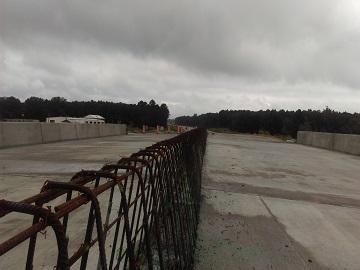
Section Branding
Header Content
How Your IKEA Furniture Gets Across The Ocean - And Across The State - To Your Living Room
Primary Content

As we continue to ask “What Moves You, Georgia,” we consider a big mover in the state’s economy: shipping through the port of Savannah. In fiscal 2015, the port loaded more than 28 million tons of cargo on and off ships. Coastal Georgia residents are used to seeing those ships - and might even know the people who work to unload them. But what does all that freight do for the rest of the state - and how does it get there?
Consider, for a moment, your living room. Do you have a chair, a desk, maybe a futon from IKEA? Most of us do. And if you got your Scandinavian housewares from anywhere in the southeast, they came to you through the port of Savannah.
“Most of our flow is coming in from Europe,” says Patrick Wedig, IKEA’s U.S. distribution operations manager. “As the containers are offloaded, we work with a local company that brings the containers from the port into the distribution center.”
As you might imagine, that distribution center is huge. It holds 80,000 pallets of lamps, kitchenware and not-yet-assembled furniture, stacked 100 feet high. And that stock has to move efficiently.
“I want them to be able to come, drop off the container, pick up an empty container, go to the port - and we want a higher turn rate,” Wedig explains. “So if traffic gets to be an issue, then of course our turn is less.”
Wedig says the roads outside the gates of the distribution center sometimes get backed up in the late afternoon.
That’s about the time of day I took a drive down highway 21 outside the distribution center, with state transportation board member Ann Purcell.
“See the trucks coming?” she asks as we turn into traffic. “And I drive this way practically every day, ‘cause I live in Effingham County.”
“So you’re always surrounded by trucks,” I ask.
“Always,” Purcell replies. “This is what you see in the mornings, going south into Savannah with 21. And you can see the truck traffic, and you can also see the traffic of the bedroom communities headed home.”
So it’s not the most pleasant commute - and backed up at every red light on this little four-lane road are trucks, hauling shipping containers. And State Representative Ron Stephens explains it’s not just imports for companies like IKEA that can get stuck.
“Those 10,000 poultry employees that are in the opposite end of the state probably would not be as flourishing with their economic growth in that area unless we had the ports,” Stephens says. “In addition, in Dalton, Georgia, with the carpet industry, they use our ports to ship their products out, and that is a huge benefit to Dalton.”
In other words, getting these trucks out of gridlock and onto the highway toward Dalton and the rest of the state is key for Georgia businesses. That’s why the Department of Transportation is working on a series of projects to open up the roads around the port. The next road - set to open next year, will create a sort of expressway from the gates of the port to I-95.
“You’re gonna alleviate any of the traffic signals that you presently have on 21, also on Georgia 307,” says Purcell, “so having all of that factor also it will save the truckers 15-20 minutes driving time.”
Saving time enables that higher turn rate IKEA wants - and it means more money for drivers, who get paid by how many loads they haul.
But driver John Jackson worries whether just getting the traffic to move better on the way to the port will really help. Wider roads will mean more trucks can get to the port, he says, and “all that’s gonna do is make it more congested.”
“It’s gonna make us sit more,” Jackson says. “They can’t handle the traffic they got now.”
Wedig of IKEA says the Port of Savannah is more efficient than most ports he deals with. And Georgia Ports Authority Executive Director Curtis Foltz says the company’s working to make sure the always-increasing traffic doesn’t create new problems.
“We are 100% focused on not only getting the trucks and the trains to the terminals, but then the terminals processing them as efficiently as they can,” Foltz says. “We do a very good job of it; we’re far from perfect. We do a very good job of it today, and we’re always looking to get better.”
Better, that is, at getting furniture, food, and all kinds of other goods to the stores where you buy them - and getting Georgia products to the rest of the world.
(This story also appears on Medium).
Tags: whatmovesyouGA, Georgia Ports Authority, transportation, shipping, Port of Savannah, Ikea
